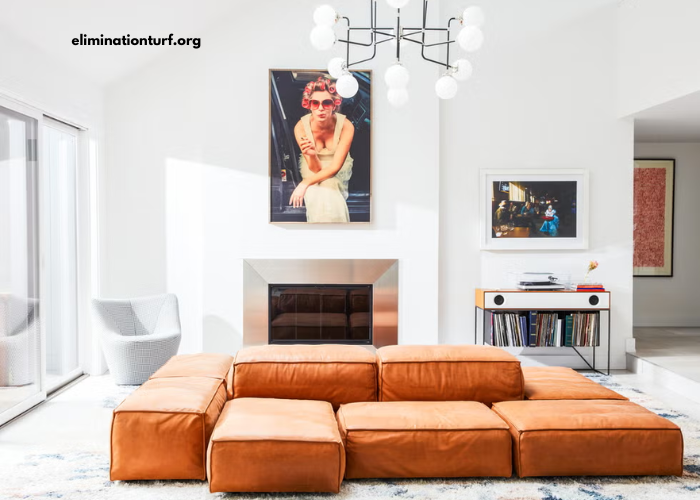Minimalist living is more than just a trend; it is a lifestyle choice that brings clarity, peace, and purpose into our lives. By embracing minimalism, we focus on what truly matters and eliminate the excess that weighs us down. This guide will explore the principles, benefits, and steps to achieving a minimalist lifestyle.
What is Minimalist Living?
Minimalist living is the practice of simplifying your life by reducing possessions, distractions, and unnecessary commitments. It is about living with intention and prioritizing quality over quantity. Minimalism applies not just to physical belongings but also to mental clutter, relationships, and daily routines.
The Philosophy of Minimalism
Minimalism is not about deprivation but about finding joy in less. It allows you to focus on experiences, personal growth, and meaningful relationships rather than material possessions. This philosophy helps in reducing stress and enhancing overall well-being.
Benefits of Minimalist Living
Adopting a minimalist lifestyle offers numerous advantages that improve your mental, emotional, and financial health.
1. Reduced Stress and Anxiety
Clutter and excessive possessions can create mental chaos. A minimalist environment promotes tranquility, making it easier to relax and focus on what truly matters.
2. Financial Freedom
By cutting unnecessary expenses and prioritizing needs over wants, minimalism can help you save money and achieve financial independence.
3. Increased Productivity
A clutter-free space leads to better focus and efficiency. Minimalists often find themselves more productive as they eliminate distractions from their work and daily routines.
4. Enhanced Relationships
Minimalism encourages quality interactions over material possessions. With fewer distractions, you can build stronger connections with family, friends, and loved ones.
5. Better Mental Clarity
A simplified life leads to a clearer mind, helping you make decisions with confidence and purpose.
Steps to Achieve Minimalist Living
Embracing a minimalist lifestyle requires intentional changes in different aspects of life. Here’s how you can start:
1. Declutter Your Space
The first step to minimalism is decluttering. Start with one room at a time and follow these steps:
- Sort Items: Keep what you truly need and discard what no longer serves a purpose.
- Adopt the KonMari Method: If an item does not spark joy, consider letting it go.
- Digitize Documents: Reduce paper clutter by going digital whenever possible.
2. Simplify Your Wardrobe
A capsule wardrobe with essential, versatile pieces can make dressing easier and stress-free. Follow these guidelines:
- Keep clothing that matches your style and lifestyle.
- Donate or sell clothes you haven’t worn in the past year.
- Choose quality over quantity.
3. Reduce Digital Clutter
Your digital space can also be overwhelming. Simplify it by:
- Unsubscribing from unnecessary emails.
- Organizing files and deleting unused apps.
- Setting screen time limits to avoid distractions.
4. Prioritize Experiences Over Things
Shift your focus from material possessions to meaningful experiences. Invest in travel, learning new skills, or spending time with loved ones rather than accumulating items.
5. Practice Mindful Consumption
Before making a purchase, ask yourself:
- Do I really need this?
- Will it add value to my life?
- Can I live without it?
6. Create a Minimalist Home
A minimalist home fosters peace and functionality. To achieve this:
- Use neutral colors for a calm environment.
- Invest in multi-functional furniture.
- Keep decorations simple and meaningful.
7. Simplify Your Schedule
Avoid overcommitting and make time for things that matter. Prioritize:
- Essential tasks over busywork.
- Quality time over quantity.
- Saying ‘no’ to unnecessary obligations.
8. Focus on Mental Minimalism
A minimalist mindset is just as important as a minimalist space. Practice:
- Meditation and mindfulness to clear your mind.
- Gratitude to appreciate what you already have.
- Letting go of toxic relationships and negative thoughts.
Overcoming Challenges in Minimalist Living
Transitioning to a minimalist lifestyle comes with obstacles, but these challenges can be overcome with the right mindset.
1. Emotional Attachment to Items
Letting go of possessions with sentimental value can be difficult. Keep only a few meaningful items and consider taking photos of others for memories.
2. Fear of Missing Out (FOMO)
Minimalism might make you feel like you are missing out on trends or luxuries. Focus on long-term happiness rather than short-term gratification.
3. Resistance from Family and Friends
Not everyone may understand your minimalist lifestyle. Communicate your reasons clearly and lead by example rather than forcing others to change.
4. Impulse Buying
Combat impulsive spending by creating a shopping list and sticking to it. Delay purchases for a few days to determine if they are truly necessary.
Minimalism in Different Areas of Life
Minimalism extends beyond possessions and can positively impact various aspects of life.
1. Minimalist Finances
- Create a budget and stick to it.
- Avoid debt and unnecessary expenses.
- Save and invest wisely for future stability.
2. Minimalist Diet
- Opt for whole, natural foods.
- Avoid processed and excessive junk food.
- Keep a simple meal plan for easy, healthy eating.
3. Minimalist Travel
- Pack only essentials when traveling.
- Choose experiences over souvenirs.
- Travel light for a hassle-free experience.
4. Minimalist Work-Life Balance
- Prioritize tasks with real impact.
- Set boundaries between work and personal life.
- Focus on quality work rather than excessive workload.
Conclusion
Minimalist living is about embracing simplicity, clarity, and purpose. It enhances well-being, reduces stress, and allows you to focus on what truly matters. By making intentional choices, you can create a fulfilling, meaningful life with less clutter and more happiness.
Adopting minimalism is a journey, not a destination. Start small, make gradual changes, and enjoy the freedom that comes with living simply. With the right mindset and actions, you can experience a life of greater fulfillment, peace, and joy.

